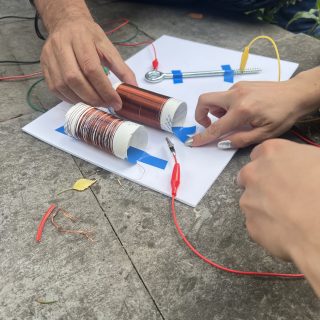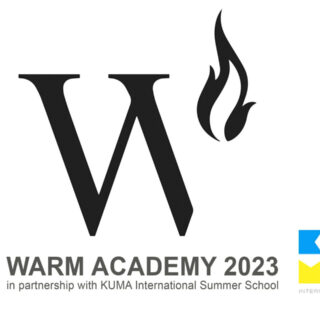The instrumentalisation of education to create stereotypes of Albanians as “dangerous” is not entirely unintentional. Paranoiacs need an alibi to justify discriminatory policies and to cleanse their consciences that has been soiled by propaganda that renders Macedonia dangerous.
It is almost three decades now since Macedonia gained its independence, as a pluralist and democratic country. However, these years have not been enough for the two million-strong state to detach itself from the communist mentality of the domination of the “majority” over the “minority” through the ideology that “all should obey the party”. Often, schools are an instrument of the state to propagate ideologies. So, it is not by chance that we come across the paranoia of a xenophobic state in various forms throughout the vertical and horizontal of the education system. Unfortunately, the belief that Albanians and the other non-Macedonians represent a danger to the state – and, consequently, to the Macedonian people – is still cultivated in Macedonia. Therefore, to prevent the “bad from happening”, their rights must be curtailed and controlled by “the party-mother”.
Nevertheless, as it has been proven many times through the 28 years of Macedonia’s independence, the parties that have led the state and put in place the education policies, have been anything but a mother figure to the Albanians – the second largest population in the country. This must be reason why they still do not surrender – even now – to textbooks that denigrate Albanians as: “mountain people”, “barbarians”, “collaborators of the occupiers”, “occupiers of Macedonian homes and properties”, “denizens” and so on.
The instrumentalisation of textbooks to dehumanize Albanians as “dangerous” does not relate only to their past, but also to their future. Therefore we get, “Tomçe dreams of becoming a pilot”, versus “Agim, a shepherd”. Further, while “Macedonian students discuss whether to listen to music or watch a science documentary”, “the Albanian students make plans how to steal the grade books from the school, and tear them apart”! Creating such stereotypes is not entirely unintentional. Paranoiacs need alibis to justify their discriminatory policies, to cleanse their tarnished conscience from preventing the opening of Albanian schools in Manastir, Prilep, Ohër, Prespë, Veles and Skopje. Still, nowadays, schools in the capital do not permit the opening of parallel classes taught in Albanian, giving lame excuses about there being no teachers available or that there is no space. Two years ago, according to official data, there were 1,401 Albanian children in Macedonia who are not realizing their constitutional and legal right to be educated in their mother tongue. Of them, 1,217 were attending school in Macedonian, and 184 in Turkish. They did not do so out of the free will of their parents but because the Ministry of Education failed to open schools and did not provide teachers who speak Albanian.
Thus, mechanisms of under appreciation, namely mass assimilation of the “minority” by the “majority” are abundant. The idea of “teaching Macedonian from grade one” may be reactivated, because that is the language of the state and ‘we cannot wait for pupils to reach the third or fourth grade’. The logic being that: this way the likelihood of Albanians being bothered by the names of the Yugoslav heroes at school will decrease; they will react less when the Macedonian classes are filled with Albanian students; when there will be only one professor instead of 14 for each class, or when their schools will have 2,000 or more students, whereas the schools of Macedonians have 1,000 or less. In fact, such policies lead somewhere else: towards the consumption of injustice and accumulation of interethnic hatred, which will surely erupt one day – when the cup of discrimination overflows. Multi-ethnic Macedonia circles around this danger for as long as the instrumentalisation of education and its use as the justification of chauvinistic policies is not done away with.
——————-
Laura Papraniku is an expert on Macedonian education issues. As a journalist, she has covered this sector since 2001. Laura is currently working for Radio Shkupi and is a contributor to Koha newspaper. She has a professional master’s degree in Education Management and Policies.


